A Notion of Sacramental Bread
Note from Peter: We welcome Michael Hanson back with another thought provoking and, maybe even, controversial guest column. I am very curious to hear what you think of his ideas; whether you understand his vision and if you agree or disagree with his world view. This is an open forum and we encourage dialogue with all of our readers. It’s okay to voice your opinion as long as it’s done in a respectful way; nothing touches a nerve quite like commentaries that refer to God and the sacred. Now, here’s Michael:
“The Bread in your hand
Is the Body of the Cosmos”
Thich Nhat Hahn
Many times recently I have been asked to explain my idea of Sacred Baking in more detail. Many of you may have read my previous article about my life journey and my idea of baking an honest, holy or sacred loaf. Here I want to explain my practice in more depth and welcome your thoughts. I have moved beyond “artisan baking” for two reasons. First, the term artisan, as many people have noted, has been stolen by the mass retail marketing experts; most “food porn” perverts the language to such an extent that factory made food now often gets called “artisanal.” Second, my personal journey has brought me to a new place of understanding and connecting with the Divine, that which is bigger than ourselves.
Our ancestors had a direct and deep connection to the earth and the fruits of the earth: tilling, planting and harvesting in cycles to feed themselves. Around these tasks built up ceremonies, rituals , songs and dances which, in our culture have all but disappeared, the remnants of which exist in ancient folk customs, many of which were expropriated by the religious orthodoxy and institutions and transformed into “religious” ceremonies; that most fundamental to Christians being the Eucharistic bread proffered in the form of a blessed sacrament.
In existing older societies and cultures around the world there still exist ceremonies, songs, and dances in which the people honor and give thanks to the earth for its abundance. In the Christian west we have given over this role to the church. I believe that there is a need and desire to reconnect with the ancient ways of being, of living. In a small way, home bread making is filling this need. I believe that we can re-sacralise our lives through bread; by baking in a holy way we can create sacred bread.
As a third generation master baker and bread oven builder I have a deep understanding of bread and baking, and the important role of the village baker/bakery in the creating and sustaining of the village. One cannot have a village/community without a baker and an oven. Home is where the hearth is, and a sacred hearth can bake communion bread for the community without the need for priests and their process of transubstantiation.
As a ceremonialist I understand the importance of personal and communal ritual in thanksgiving for the food we eat. Grace is a state of being, of communion with the Holy, as well as a prayer said before a meal. Bread is perhaps the foundation of “modern” civilization, the staff of life, and for over seven thousand years societies have found ways to honor and give thanks for grain, whether it be wheat, maize, barley rice etc etc. Their connection to and respect of the earth allowed them to bake in a sacred way. My intention is to do the same.
If one is to bake sacred bread I feel one has to combine the ancient wisdom of ritual with artisanship. When baking I feel a deep connection with the earth and my ancestors; additionally one has to source raw materials in a respectful way, honoring and thanking everything and everyone who has contributed to the wood, clay, water and wheat. This develops a way of baking with intention that enables the Divine to manifest through one’s hands and heart, and hence one can bake a sacred loaf. In short, honoring creates empathy which in turn creates sacred bread.
I feel my life’s work is to re-sacralise the bread we eat, the bread we bake, and through this the life we live. There are many thousands of home bakers who in their own way are feeding this process. I want to help them move beyond their desire to become artisan bakers to become Sacred bakers. I see bread as a “ferment” for change, internally and universally. I would love to know how you feel; do you bake sacred bread? Or does this belong only in the “priestly realm”?
Recent Articles by Michael Hanson
Add Comment
You must be logged in to post a comment.



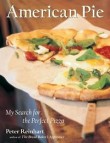
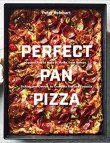
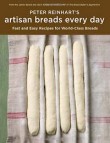
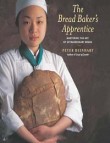
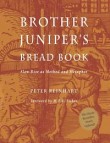
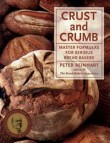
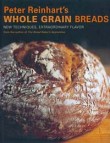
I agree with some of what Michael says… wanting a connection to the past; wanting to craft each piece of something from the start to produce a truly memorable product; respect for the earth. It sounds like he puts his heart into baking bread and I would really like to learn from him in that regard. And like Michael I don’t care for the word “artisan” being used improperly for mass produced products. I can’t however agree with what we both feel is the misuse of the word artisan without disagreeing with some of his own philosophies…included in these are re-sacramentalizing our lives by baking bread; baking communion bread without the need for priests and their process of transubstantiation; and thanking the earth. I like the fact that he pours his heart into what he does…it has real value and is a gift from God, not the earth. I also will go to mass to give thanks to God and receive the Eucharist which is truly sacred… I will go to Michael for really great artisanal bread.
hi mike
thanks for the appreciation of my passion and craft.
As a lapsed protestant and practising Buddhist I accept your belief in Catholic doctrine of transubstantiation. Do you know the difference between eucharistic and sacramental bread? The latter I believe can baked at home, does that not make it sacred?
Hi Michael.
Your insight of baking as sacred craft opened my eyes to see what I was looking for.
To give thanks for grain might stil be found among folks, but to thank for wood, clay, water and wheat is to comprehend the true act of creation, whichever your idea of a supreme being is.
Thank you so much.
Ricardo Brill-Thiel
brillthiel@hotmail.com
i have been saying this for years along with allan scott. i no longer or ever called myself an artisan and even have told my feeling to the guild. i’m living in the appalachian mountains, growing my own for our bakery. Media is not all to blame. so are the culinary schools also to blame? there is no such thing as artisan bread/ pizza /cheese etc. Its a person not a product. i saw it happen 51 years ago. as bakers we must change it. thats why i moved where i can have the most influence. look me up come and see what we are doing peace tim
15 years ago sorry